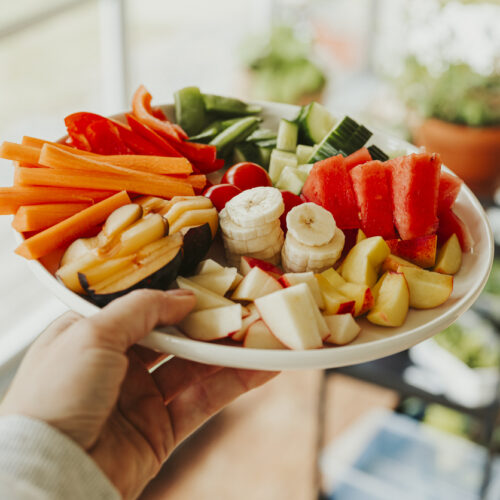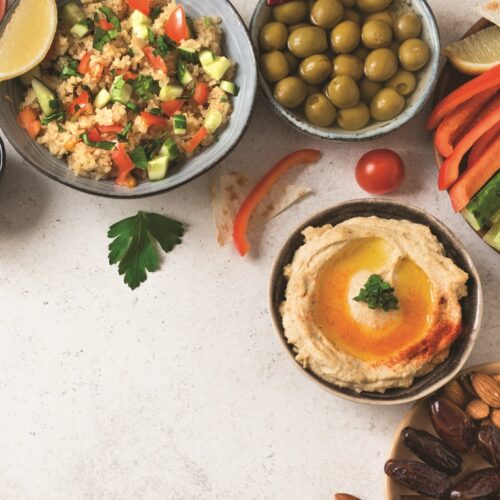
As winter takes hold across the country and we are exposed to others with ills and chills, we often start to think about what we can do to improve our chances of not falling prey to those bugs.
A weakened immune system means you’re more susceptible to anything that’s going around, whether it’s the common cold, influenza or a food-borne bacteria like campolybacter.
We know you already practice scrupulous food safety in your home, so apart from never leaving the house and not allowing anyone to visit, boosting your immune system is your best defence against those bugs. For some people that may include getting a flu injection, but for everyone it should include foods that will help your immune system operate at peak performance.
The immune system is made up of different ‘layers’ of defence:
Non-specific immunity: White blood cells are assisted by a set of proteins known as the ‘complement system’, plus cytokines (messengers). These protect us on a daily basis by identifying and destroying bacteria and viruses.
Specific immunity: If we do succumb to an infection, antibodies are produced to deal with that specific bacteria or virus; and the next time that bacteria or virus attacks, our immune system remembers it, produces the required antibodies and quickly disposes of it.
Nutrients for your immune system
Zinc: This is possibly the most important nutrient for your immune system, but balance is important as an excess of zinc can actually suppress the immune system. That’s why supplements are not recommended: the best way to get the right amount of zinc is through foods, to ensure balance with other nutrients.
Iron: Like zinc, both a deficiency and an excess of iron is associated with increased susceptibility to infection, so iron-rich foods are advisable and supplements are not.
ACE: Vitamins A, C and E are antioxidants that play an important role in the immune system. Vitamin C increases the production of white blood cells and interferon, a specific antibody that stops viruses growing and multiplying. The antioxidant properties of these vitamins also reduce the number of free radicals in the body, which can cause damage to immune cells.
B Vitamins: Of the B group vitamins, folic acid, vitamin B6 and pantothenic acid have been shown to play a role in both non-specific and specific immune functions.
Phytonutrients: Plants produce phytonutrients to protect themselves from viruses, bacteria, fungi, insects, drought and even the sun. They also add colour, aroma and flavour to plant foods. There are hundreds of different phytonutrients, which are believed to benefit our health in many different ways. Many of the phytonutrients are powerful antioxidants and thought to play a role in boosting our immune system.
The interesting thing about many nutrients is that they often act in synergy with one another; their effect is enhanced by the presence of the other nutrients. For this reason – even though it may be tempting to go for a bottle of supplements – food is your best option for enhancing your immune system.
Feed your immune system
Zinc
- Seafood and lean meat are rich sources.
- Also found in milk, grains, lentils and nuts.
- The zinc found in plant-based foods, like bread and cereals, is not as well absorbed as that in seafood and meat due to the presence of phytic acid and fibre.
Iron
- The best source of usable iron is haem iron found in meat (the redder the meat, the more iron it contains); mussels are also a rich source.
- Main sources of non-haem iron in our diets include bread, breakfast cereals, potatoes and kumara, but legumes and pulses are richer sources.
Vitamin A
- Found in liver, dairy products, eggs and oily fish.
- The body also produces vitamin A from beta-carotene, which is found in many fruit and vegetables, especially carrots.
Vitamin C
- Found in fresh vegetables and fruits: spinach, tomatoes, potatoes, broccoli, strawberries, oranges and other citrus fruit.
Vitamin E
- Found in wheat germ and wheat germ oil, vegetable oils, almonds, peanuts, avocado and kumara.
Folic acid
- Liver, kidneys, yeast spreads, red kidney beans and spinach are the richest sources.
- Some breakfast cereals are fortified with folate.
Vitamin B6
- Widely found in meats, whole grains, vegetables and nuts.
Pantothenic acid
- Widely found in meats, whole grains and legumes
Phytonutrients
- Found in plant foods: legumes, vegetables, fruits, whole grains, nuts, seeds, teas, herbs and spices.
Chicken soup: Myth or cure?
Chicken soup has for many centuries been considered a remedy for the symptoms of colds and flu. Even today, many people swear by Mum’s chicken soup when they’re feeling under the weather. Is it the placebo effect or can chicken soup actually help?
There is some evidence that chicken soup can provide relief from the symptoms of colds and flu by inhibiting the ‘over-reaction’ by some of the white blood cells that are part of the inflammatory response to the bacteria or virus. Drinking the hot soup also helps to loosen nasal mucous, which can be quite a relief when you’re all clogged up. Many of the ingredients in chicken soup are antioxidants and if you look at our Comforting chicken and vegetable soup recipe, you’ll see that it provides all the immune-boosting nutrients you need.
While the scientists are still debating how its medicinal properties might work, we do know that it’s a great-tasting comfort food that makes you feel better! What better reason do you need?
www.healthyfood.com










